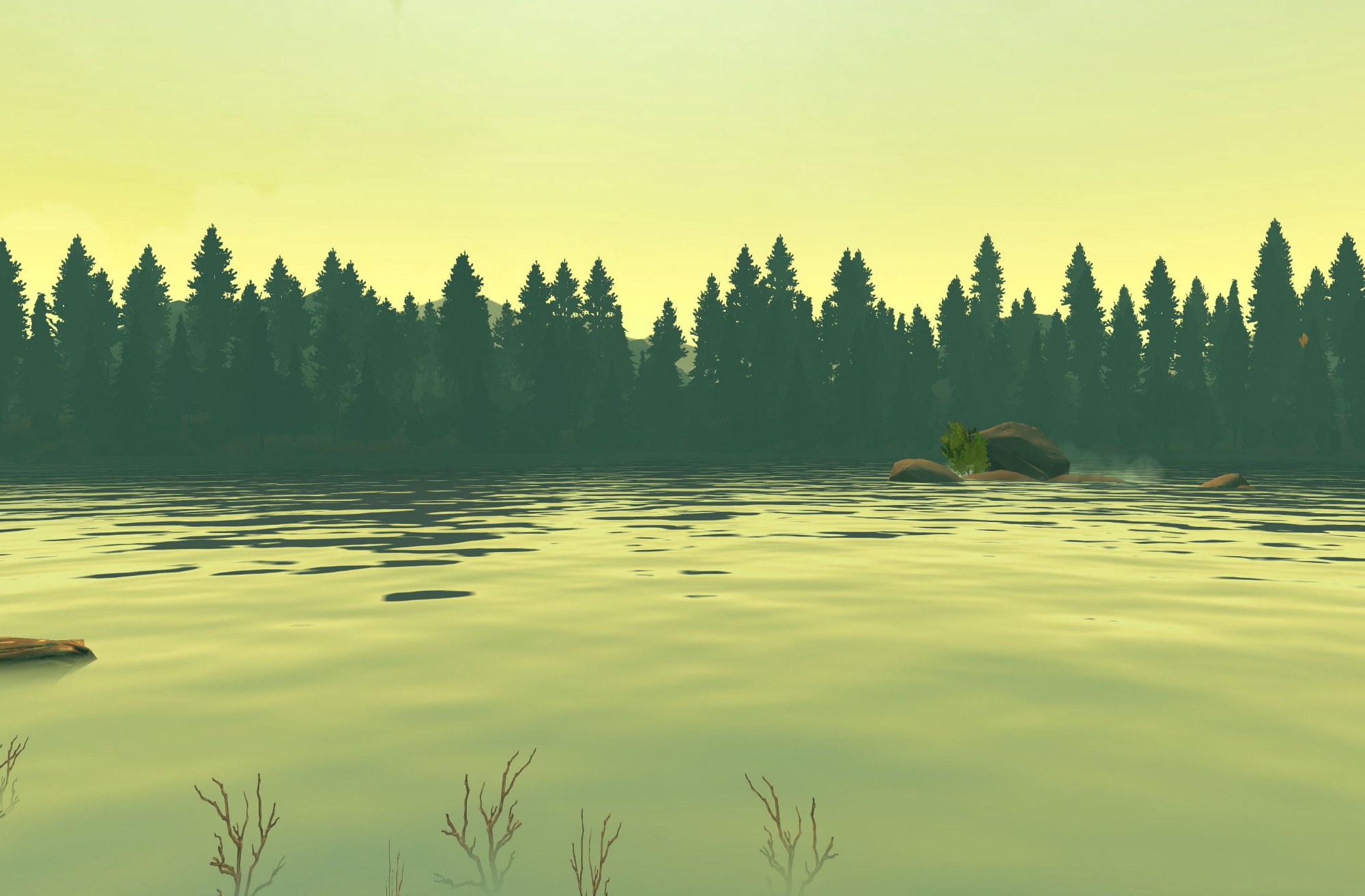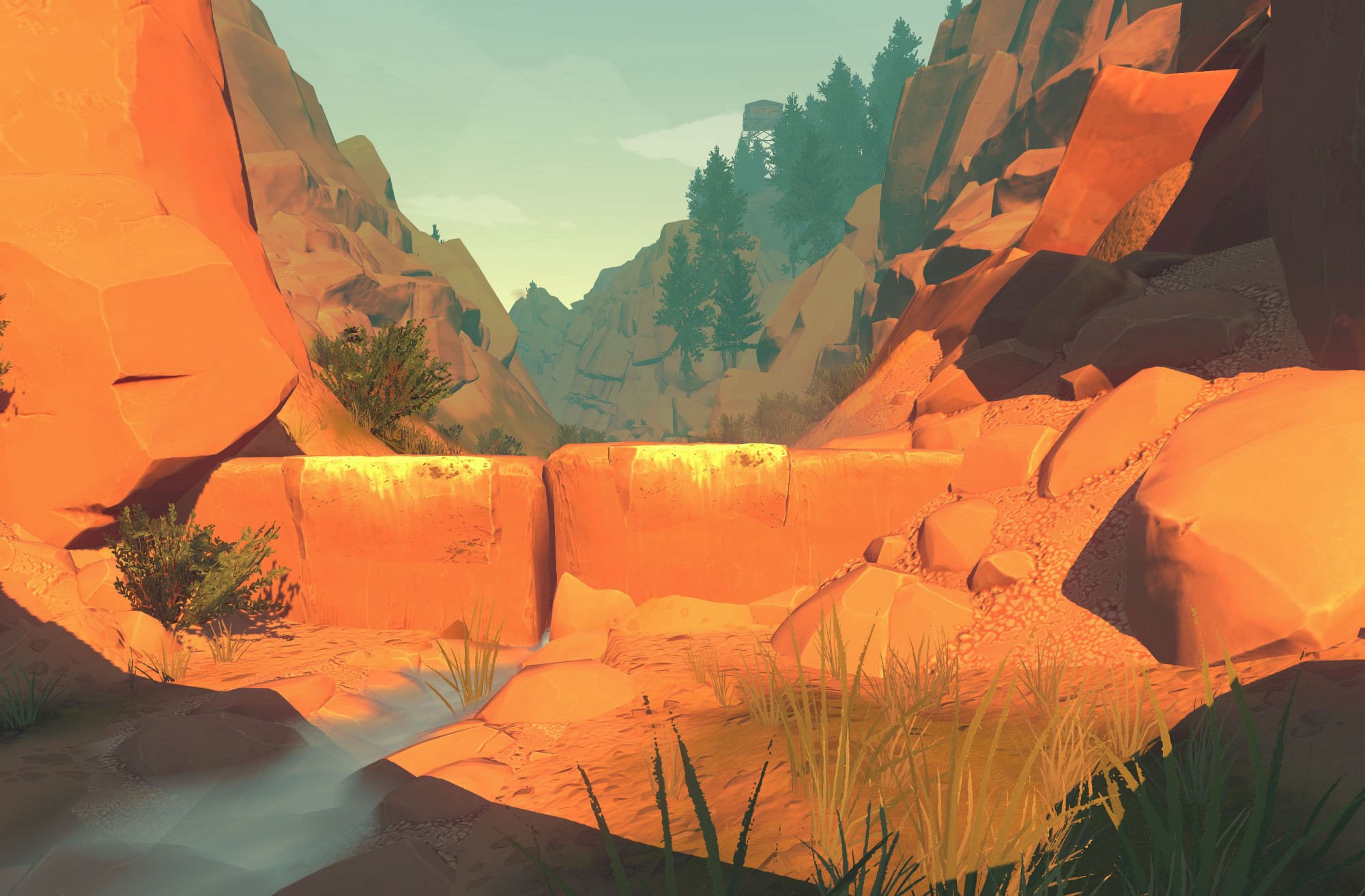Double exposure
Feelings of vulnerability, both to the elements and to other people, are perhaps the central theme of Firewatch, the recently released debut game by young studio Campo Santo. No doubt we’ve all felt that way at various points in our lives: walking home late at night; being lost in an unfamiliar place; getting out of one’s depth in a social situation or at work. And it’s that experience that the game deftly taps into, as a tense and very human narrative gradually unfolds.
It’s 1989. Playing as Henry, careworn and perhaps a little bitter after going through a rough patch in your life, you withdraw to the Wyoming wilderness, taking a summer job as a fire lookout and living in an isolated tower, two days’ hike from anywhere. Your only contact is with your supervisor, Delilah, stationed in the next tower along, and available through a hand-held walkie-talkie. For both Henry and you the player, she is a lifeline of sorts, and dialogue with her gives the game much of its human colour.

The rest of Firewatch’s rich personality comes from the landscape itself, which is presented in a glorious, impressionistic palette of sun-kissed oranges and lush greens. The result is unquestionably the closest I have ever felt to being in the great outdoors while playing a video game, complete with sunsets that feel like sunsets. By all accounts this feeling is something that the team put a lot of work into, and it’s not just eye candy: the sense of nature as an actor in the game gives it a lot of its atmosphere. I can’t remember stopping to look at the scenery in a game anything like as much as I did in this one. Even navigation is largely a joy, and if you turn off the optional location marker, you can restrict yourself to finding your way with just the game’s map and compass and your instincts, which helps encourage you to look at your surroundings all the more. I recommend it.
Otherwise, the mechanics of the game are not challenging. Like many of the recent crop of narrative and experience-driven games, the point is to tell you a story and involve you through discovery, not to develop muscle-memory skills and then push them forward.
Nor is it hugely long. It’s quite possible to complete Firewatch in one sitting, if you have the time equivalent of a couple of feature films available—and that may well be the best way to experience it. (I didn’t have a block of time that long, so I completed it over a few days.) The extent to which this brevity matters will depend on what you expect to get out of a game, and how much spare time you have on your hands. For me, there was just the slightest pang of disappointment at not being able to spend more time in this beautiful wilderness, but I’ll just have to play through again.

Sadly, the ending feels a little out of kilter, and this, for me, is the game’s only significant misstep. One source of tension ramps up just as another resolves, and I felt torn between the two and unclear what the game expected me to do. It also felt like there was an opportunity for a final denouement, which, unless I somehow missed it, never came.
But ultimately, in almost every way, Firewatch does what it sets out to do, and does it well. It’s a piece of interactive art which is well aware of its limitations, and makes virtues of them. Unlike full-motion video adventures, where the cracks can easily show through, relying on voice acting—which is excellent—produces a coherent, believable result that each player will experience a little differently (although Her Story was a clever example of FMV working within its limits). Like recent kith and kin games such as Gone Home, or even Journey, the effect exists as much in the mind as in the rendering engine, and the carefully constructed visuals complement and amplify that effect substantially.
Campo Santo’s team are not new to games, of course, but nonetheless this is a highly impressive first game from a new studio. Feeling vulnerable and exposed has never been so entertaining.
Firewatch is available now for PC, Mac and Linux on Steam for £14.99 or $19.99. It is also available for PS4. Developer: Campo Santo. Publisher: Campo Santo and Panic.